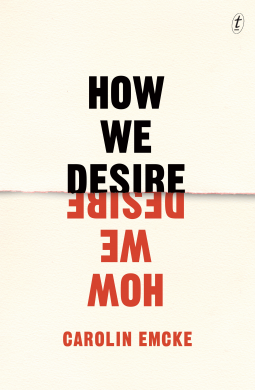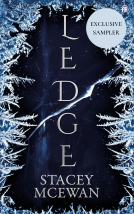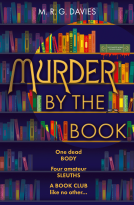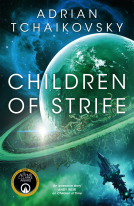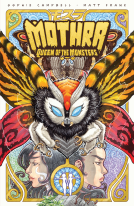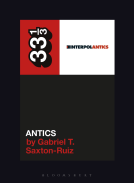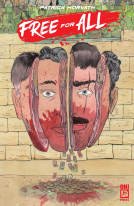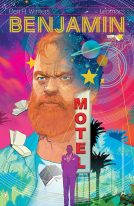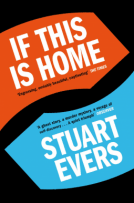Please wait... This may take a moment.
How We Desire
This title was previously available on NetGalley and is now archived.
Pub Date
7 May 2019
| Archive Date
11 Dec 2018
Description
Emcke, a former war correspondent, turns her reporter’s eye to her own experiences, exploring questions about identity, sexuality and love. Emcke draws back the veil on how we experience desire, no matter what our sexual orientation. What if, instead of discovering our sexuality only once, during puberty, we discover it again later—and then again, after that? What if our sexuality reinvents itself every time the object of our desire changes? Emcke also examines how prejudice against homosexuality has survived its decriminalization in the west.
Emcke, a former war correspondent, turns her reporter’s eye to her own experiences, exploring questions about identity, sexuality and love. Emcke draws back the veil on how we experience desire, no...
Description
Emcke, a former war correspondent, turns her reporter’s eye to her own experiences, exploring questions about identity, sexuality and love. Emcke draws back the veil on how we experience desire, no matter what our sexual orientation. What if, instead of discovering our sexuality only once, during puberty, we discover it again later—and then again, after that? What if our sexuality reinvents itself every time the object of our desire changes? Emcke also examines how prejudice against homosexuality has survived its decriminalization in the west.
A Note From the Publisher
Carolin Emcke was born in 1967. She studied philosophy, politics and history in London, Frankfurt and at Harvard. From 1998 to 2013 she reported from war and crisis zones including Kosovo, Afghanistan, Pakistan, Iraq, Gaza and Haiti. She has written a number of books, and in 2016 received the Peace Prize of the German Book Trade.
Carolin Emcke was born in 1967. She studied philosophy, politics and history in London, Frankfurt and at Harvard. From 1998 to 2013 she reported from war and crisis zones including Kosovo...
A Note From the Publisher
Carolin Emcke was born in 1967. She studied philosophy, politics and history in London, Frankfurt and at Harvard. From 1998 to 2013 she reported from war and crisis zones including Kosovo, Afghanistan, Pakistan, Iraq, Gaza and Haiti. She has written a number of books, and in 2016 received the Peace Prize of the German Book Trade.
Advance Praise
'Delicate and vulnerable, angry, passionate, clever and thoughtful. An amazing work.’—Westdeutsche Allgemeine Zeitung
‘A compelling conversation, urging readers to rethink the borderlands of the erotic.’—The Australian
‘Huge intellect and tremendous energy.’—Radio NZ
‘Hypnotic.’—Sydney Morning Herald
‘A beautiful account of discovering and rediscovering one’s identity.’—Otago Daily Times
Praise for Echoes of Violence [2007]
‘A gallery of magnificent survivors, men and especially women who tell
their tales without self-pity and who refuse to surrender to the
miseries piled upon them.’—New York Review of Books
‘Emcke describes the moral and political delicacy of reporting on a war
from one side or the other and the overwhelming questions of humanity
and inhumanity found in the midst of war.’—Booklist
‘Combines gripping narrative with philosophic reflection on the meaning
of war and the limitations of journalism to communicate the abyss of
violence.’—The Globe and Mail
'Emcke...recounts personal stories to illuminate the larger significance
not only of each particular story/assignment /war but also of the nature
of injustices... She handles battle with grace, both in the midst of
conflict and, later, on the page.’—Bookforum
‘A compelling blend of narrative and analysis, description and
reflection.’—The Age
‘Emcke is the thinking person's reporter. Her book is peppered with
quotes from ancient and modern thinkers who have shaped her own
understanding of the human condition. She combines gripping, dramatic
stories with philosophical reflection on the nature of violence as she
tries to make sense of human suffering.’—Montreal Gazette
'Delicate and vulnerable, angry, passionate, clever and thoughtful. An amazing work.’—Westdeutsche Allgemeine Zeitung
‘A compelling conversation, urging readers to rethink the borderlands of the...
Advance Praise
'Delicate and vulnerable, angry, passionate, clever and thoughtful. An amazing work.’—Westdeutsche Allgemeine Zeitung
‘A compelling conversation, urging readers to rethink the borderlands of the erotic.’—The Australian
‘Huge intellect and tremendous energy.’—Radio NZ
‘Hypnotic.’—Sydney Morning Herald
‘A beautiful account of discovering and rediscovering one’s identity.’—Otago Daily Times
Praise for Echoes of Violence [2007]
‘A gallery of magnificent survivors, men and especially women who tell
their tales without self-pity and who refuse to surrender to the
miseries piled upon them.’—New York Review of Books
‘Emcke describes the moral and political delicacy of reporting on a war
from one side or the other and the overwhelming questions of humanity
and inhumanity found in the midst of war.’—Booklist
‘Combines gripping narrative with philosophic reflection on the meaning
of war and the limitations of journalism to communicate the abyss of
violence.’—The Globe and Mail
'Emcke...recounts personal stories to illuminate the larger significance
not only of each particular story/assignment /war but also of the nature
of injustices... She handles battle with grace, both in the midst of
conflict and, later, on the page.’—Bookforum
‘A compelling blend of narrative and analysis, description and
reflection.’—The Age
‘Emcke is the thinking person's reporter. Her book is peppered with
quotes from ancient and modern thinkers who have shaped her own
understanding of the human condition. She combines gripping, dramatic
stories with philosophical reflection on the nature of violence as she
tries to make sense of human suffering.’—Montreal Gazette
Available Editions
| EDITION |
Other Format |
| ISBN |
9781925603613 |
| PRICE |
US$16.95 (USD)
|
Additional Information
Available Editions
| EDITION |
Other Format |
| ISBN |
9781925603613 |
| PRICE |
US$16.95 (USD)
|
Average rating from 20 members
Readers who liked this book also liked:
Ledge
Stacey McEwan
Romance, Sci Fi & Fantasy
Free for All
Patrick Horvath
Comics & Graphic Novels, Horror, Sci Fi & Fantasy
Benjamin
Ben H. Winters, Leomacs
Comics & Graphic Novels, Sci Fi & Fantasy
